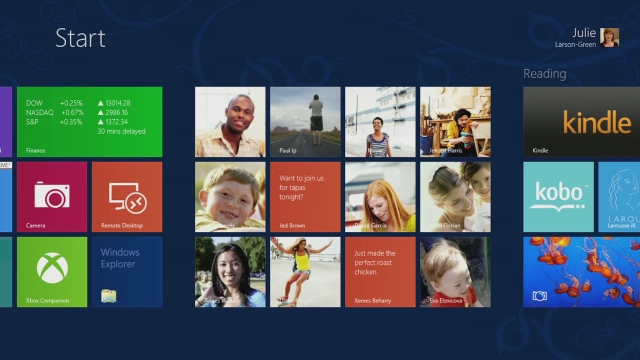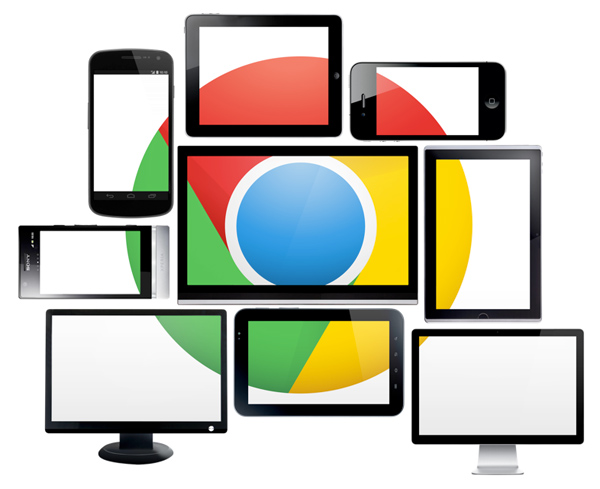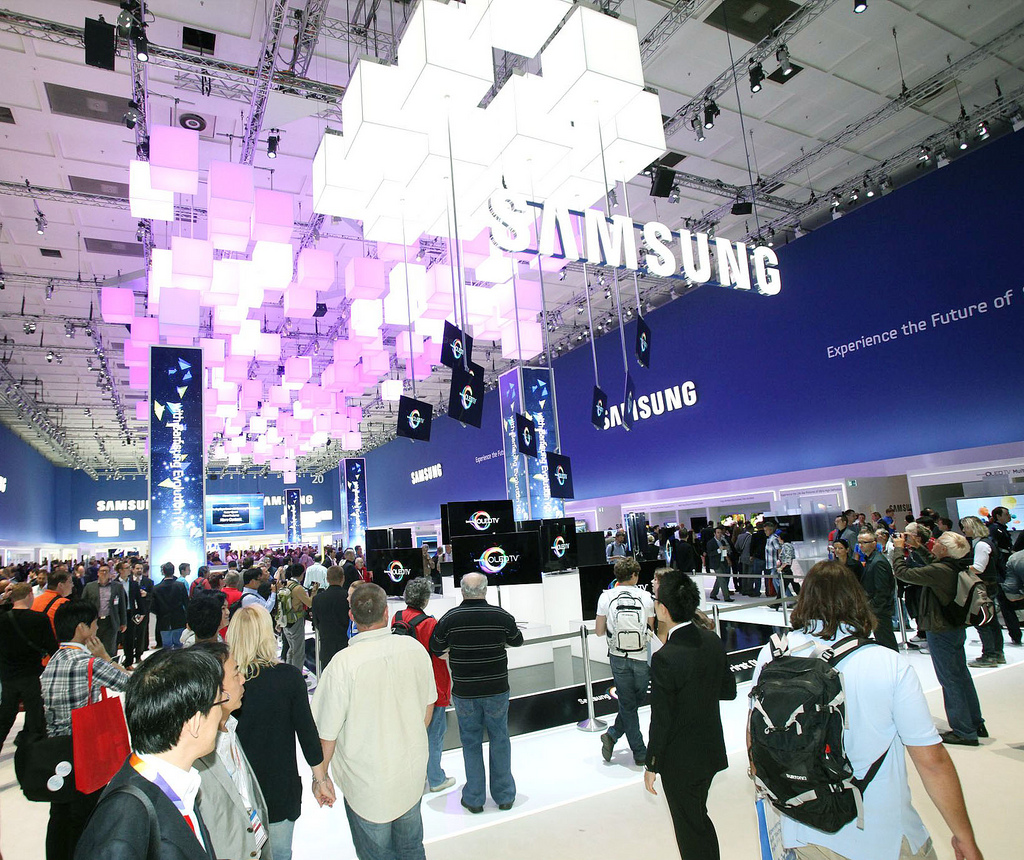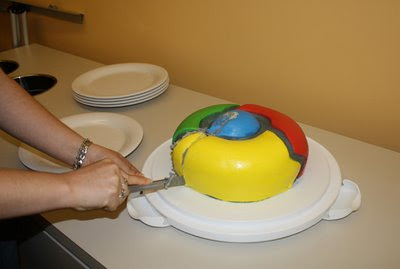
10 Windows 8 apps for IT workers
When you look at the app offerings from Microsoft's Windows Store, the bulk is made up of programs targeting a casual audience. Games seem to be popular, for instance, making up a fifth of all apps currently listed in the store. While there is nothing wrong with playing a game of solitaire during a break or wait period, it doesn't help Microsoft sell the operating system to a professional audience.
Digging deeper, however, you will find decent apps that IT workers will come to love if they take the plunge and decide to work with apps under Windows 8. There is certainly no need for that unless the system is running Windows RT, as desktop programs provide you with a similar, and often even a better, feature set than store apps at the moment.

We need an IPO renaissance
Third in a series. As many readers have pointed out, the IPO drought of the last decade has many causes beyond just decimalization of stock trading. Sarbanes-Oxley has made it significantly more expensive to be a public company than it used to be. Consolidation in the banking and brokerage industries have resulted in fewer specialists and hardly any true investment bankers surviving. The lure of derivatives trading and other rocket science activities on Wall Street have made IPO underwriting look like a staid and prosaic profession, too. Fortunately, people in positions of influence are finally starting to realize that there is no economic future for this country without new public companies.
One requirement of the JOBS Act, passed last April, was that the SEC look at trading decimalization, and especially tick sizes, to see if there has been an effect on small-cap company liquidity. If the SEC decides there is such a negative effect there’s the possibility that they introduce a new minimum tick for smaller companies of perhaps a nickel (up from a penny) to as much as a dime. I believe this would help the IPO industry, but many people disagree.

What Windows 8 needs to succeed
As a long-time Windows user, as well as software developer, I have pondered about what would make Windows 8 and the new modern UI (aka. Metro) a success. Microsoft can spit and polish the operating system, but people will interact more with applications. As good as Windows 8 might be, it won't satisfy if the apps aren't good enough.
That's why I believe Microsoft needs to rethink Windows Store. One isn't enough for Windows 8. There needs to be a second Signature store that offers only the highest-quality apps, however few they be. I'll explain.

I don't need a smartphone
Call me old fashioned. I do not now, and never have in the past, owned a smartphone. Whether it was due to geographic isolation (the iPhone debuted after I'd moved 11,000 miles to the Indian Ocean), fear of being a too-early adopter, or simply an inability to rationalize the cost of a non-subsidized device, I have somehow resisted the siren song of the smartphone revolution.
But that doesn't mean I'm stuck in the past. More than any of my contemporaries, I have embraced the post-PC concept with gusto. From my first attempts using an HP Mini 2140 netbook (great machine), through my awkward BlackBerry PlayBook (still love my 32GB unit) days to my present infatuation with rooted, customized Android tablets (thanks xda community!), I've seized every opportunity to put my 30+ year relationships with the "wintel" cabal behind me.

Kindle Fire HD is bad for Android, worse for iPad
Google is in a tough spot. Apple suddenly looks like an ally now that Amazon has unveiled Kindle Fire HD. Both companies stand to lose big time should the tablet achieve any meaningful sales success. Google Play doesn't offer strong enough ecosystem to battle with either iPad or Kindle Fire, but Amazon's tablet is more likely to scorch Android's earth. Amazon's vertical integration -- store, software and services -- is tight, as good as Apple's and in many respects superior. No matter which wins, Android loses.
Here's the problem: Only Amazon has done any meaningful Android customization on tablets, creating a curated experience similar to Apple's. Like iOS, Amazon Android is tightly vertically and horizontally integrated with siloed services. Kindle Fire is designed to mainly work within the Amazon content/retail sphere and little outside it. Amazon runs its own stores -- everything from apps to movies -- while shunning Google Play. Meanwhile, Kindle Fire supports the custom Silk browser rather than the stock Android one or Chrome. Amazon Android is a competing platform/ecosystem within the larger, more open one Google champions. (The original Kindle Fire is customized Gingerbread and new HD models customized Ice Cream Sandwich.)

Will you buy Nokia Lumia 920 Windows Phone?
Nokia's fortunes and the future of Windows Phone tie to one device: Lumia 920 running Windows Phone 8. The Finnish handset maker revealed the smartphone yesterday in a joint announcement with Microsoft. This is the Windows phone you waited for, or did you? Perhaps you already gave up and bought Android or iPhone. What I want to know on this sunny September day: Will you buy Lumia 920? If so, when -- and why? If not, why not?
Nokia and Microsoft need Lumia 920 and sibling 820 to succeed. Once the global phone leader, Nokia is now second to Samsung. During Q2, Nokia's global sales share fell to 19.9 percent from 22.8 percent a year earlier, according to Gartner. Meanwhile Microsoft's mobile platform share rose to 2.7 percent from 1.6 percent. But that's behind Samsung's Bada. Combined, Android and iOS have 82.9 percent share, forming a near impenetrable barrier of the likes Microsoft has never seen. Like Windows on PCs, Android and iOS command a broad ecosystem of applications, peripherals, developers, retailers and other services or providers.

Stock market decimalization kills IPOs and ruins the economy
Second in a series. Well it took me more than the one day I predicted to finish this column, which purports to explain that dull feeling so many of us have in our hearts these days when we consider the US economy. Our entrepreneurial zeal is to some extent zapped. For a decade it seemed we needed to jump from bubble to bubble in order just to drive economic growth -- growth that ultimately didn’t last. What happened? Initial Public Offerings (IPOs) went away, that’s what happened.
I wrote several columns on job creation over the last year, columns that explained in great detail how new businesses, young businesses, and small businesses create jobs and big businesses destroy them. Big business grows by economies of scale, economies of scale are gained by increasing efficiency, and increased efficiency in big business always -- always -- means creating more economic output with fewer people.

3 things not to do with SharePoint
I’m a big fan of SharePoint. I’ve worked with it for years, right back to SharePoint 2001. It does a lot of things very very well (Since you ask -- document management, collaborative working, and increasingly social networking functionality). However, SharePoint also does lots of things, its feature set is simply huge. Not all of these features are as mature as others, and as a result it is easy for SharePoint systems to end up feeling a bit mixed and matched. Some things work well, some less so, and some should have been avoided altogether.
It is often as important to know what not to do with SharePoint, as it is to know what to do. So, with that in mind, here are 3 things you should avoid with SharePoint:

Do you use Google Chrome?
To celebrate Chrome's fourth-anniversary -- well, in beta -- we're asking readers if and why they use Google's browser. The search and information giant released the first public test build, for Windows, on Sept. 1, 2008, with the one-oh release following just three months later. For a company renown for perpetual betas (wasn't it five years for Gmail), the rapid push to release build was uncharacteristic -- and foreshadowing. As Martin Brinkmann explains, Google set a rapid-release cycle -- new versions about every six weeks -- that transformed web browser development.
Yesterday, Tim Conneally told his personal story about using Chrome, starting from the beta. I would like to hear your story, too. You can comment to this post, or, better, email me -- joe at betanews.com. I'd like more than a comment, but your story to which we can put your byline, bio and photo.

Judge Koh should vacate the Apple-Samsung verdict
Jurisprudence demands that US District Judge Lucy Koh right a terrible miscarriage of justice occurring in her courtroom. The Apple-Samsung patent dispute is nothing but a mock trial. The jury ignored key instructions, failed to complete a crucial checklist, made egregious errors on the final verdict form and reached a verdict after 21 hours of deliberations. The foreman misunderstood one of the concepts fundamental to the case -- prior art -- leading the jury astray. Then there is Judge Koh, who prevented Samsung from presenting key evidence or witnesses that could have made its defense and case against Apple more credible.
Apple claims that Samsung copying iOS device designs and patents causes irreparable harm. But the greater injustice is against the South Korean manufacturer, which is branded a copycat and thief -- all while the victim of terrible misreporting by analysts, bloggers, journalists and other writers. Samsung suffers irreparable harm here, not Apple. Judge Koh let this travesty occur on her watch. She should be ashamed and do what this malfeasance demands: Set aside the verdict. Best scenario: She should deny all claims by both parties, and let them sort it all out on appeal. Acceptable: Order a new trial. She let the case get out of control. Time is long past to reel it in.

Shanghai'd by Samsung!
It sounded like quite the road trip. Stuck in Germany, with their host threatening to strand them there unless they engaged in what amounted to slave labor, those poor bloggers from India must have been terrified. What should have been an all expense paid junket to cover the IFA conference turned into a kind of Orwellian nightmare scenario complete with heavy-handed scare tactics, logo'd polo shirts and healthy dose of international intrigue.
Frankly, I'm not at all surprised. As a 25 year veteran of the IT press, I've seen all sides of the vendor/media dichotomy. And one of the earliest lessons I learned was that there is no free lunch. When a vendor splurges on an analyst, reporter or blogger, they are expecting to get something in return. Typically, this means positive coverage. They want you to write a glowing review of their product/event/announcement, and if you don't, you'll quickly end up on their blacklist.

The Great Recession isn’t really over
First in a series. A couple of years ago, in an obvious moment of poor judgement, the Kauffman Foundation placed my personal rag on its list of the top 50 economics blogs in America. So from time to time I feel compelled to write about economic issues and the US Labor Day holiday provides a good excuse for doing so now. In a sense you could say I inherited this gig because my parents began their careers in the 1940s working for the US Bureau of Labor Statistics. This first of two columns looks at employment numbers in the current recovery while the second will try to explain why the economy has been so resistant to recovery and what can be done about it.
You’ll see many news stories in the next few days based on a study from the National Employment Law Project detailing how many and what kinds of jobs were lost in the Great Recession and what kinds have come back in the current recovery. Cutting to the chase we lost eight million jobs, have recovered four million of those, but, here’s the problem, the recovered jobs on average pay a lot less than did the jobs that were lost, which is why the US middle class is still hurting.

You don't need Java
Java is one of those technologies that you find installed on the majority of computer systems despite the fact that average users do not come across many Java-powered websites or desktop applications. Sure, some may use desktop applications like JDownloader or the game Minecraft (which both require Java), but on the Internet? Seriously, when was the last time you went to a website that required the Java Runtime Environment to be installed for core functionality?
Statistics can be misleading, but according to Statowl, Java is installed on roughly 70 percent of Web browsers, which makes it the second most popular plugin behind Adobe Flash, and places it before heavyweights such as Quicktime, Windows Media Player, or Silverlight.

Four years with Google Chrome, and I'm never going back
Today is Labor Day in the United States. It's a federal holiday dedicated to the American workforce, celebrating, as the U.S. department of labor puts it, the "contributions workers have made to the strength, prosperity, and well-being of our country."
Every year, the Labor Day holiday falls very closely to the anniversary of Google's launch of the beta version of the Google Chrome Web browser. Released on September 1, 2008, Google Chrome is now four years old, and I am taking the opportunity on this holiday to celebrate the workhorse that is Chrome.

Samsung is dateless and desperate on prom night
A soap opera. That's how I would describe this week's revelation that Samsung is cozying up to Microsoft and the forthcoming Windows Phone 8. Still stinging from its recent court loss to Apple, the South Korean juggernaut appears to be hedging its Android bets by embracing one of the two remaining underdogs in the mobile OS race (the other being Research in Motion).
No matter how you slice it, Samsung's executives are running scared. And who can blame them? Apple will do whatever it takes to crush the little green man from Mountain View (it's a Jobsian legacy thing). And the fact that its chief hardware rival is getting squeezed in the process is simply gravy.
